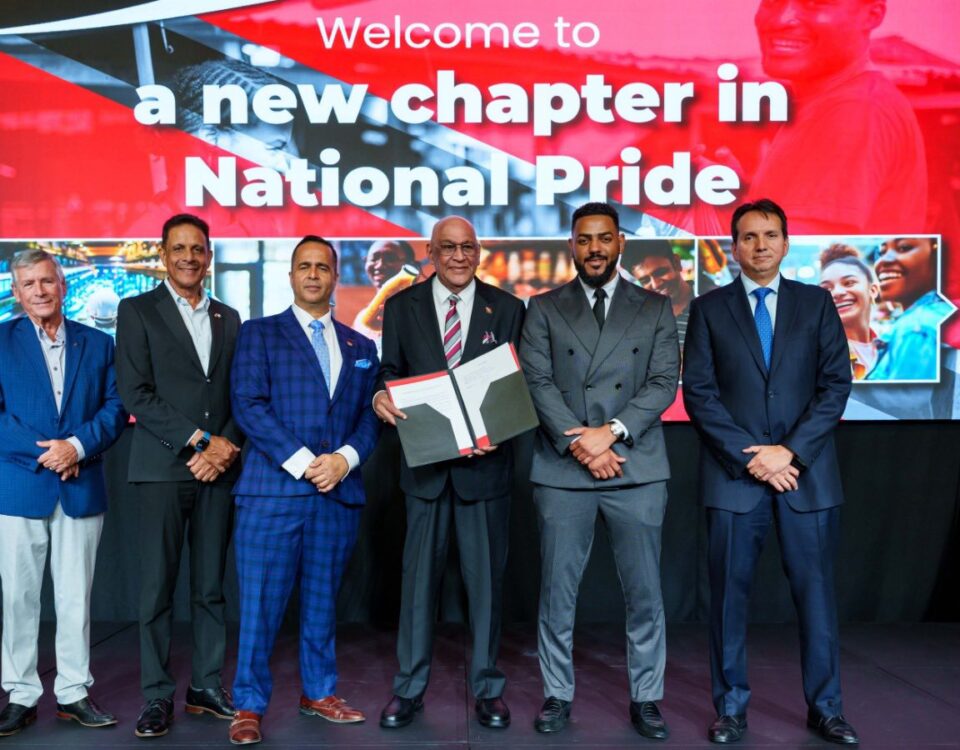Improving the ease of doing business has always been a priority of the current Government of Trinidad and Tobago from day one and as such, Ministries and Agencies are aggressively implementing a package of transformative reforms.In the Ministry of Trade and Industry, these reforms are aimed at reducing the time, cost and procedures involved in the major trade and business processes in the country.
Summary of Main Ease of Doing Business Reforms
| Indicator | Reforms |
|---|---|
| Trading Across Borders | Enhancement of the TTBizLink Application Software Implementation of e-payments at all Border Agencies Development of a Port Community System (PCS) Development of a Trade and Business Information Portal Digitization of Key Records at Trade Licence Unit Development of a National Maritime Policy and Strategy Implementation of the Business Process Re-engineering (BPR) Recommendations |
| Getting Credit | Development of a Legal Framework for Secured Transactions |
| Dealing with Construction Permits | Implementation of an Automated Construction Permitting System (branded: DevelopTT) Digitization of Key Records at Town and Country Planning Division (TCPD) |
| Starting a Business | Strengthening Information Management – Online application and e-payment services. Modernization of the Company’s Registry |
| Registering Property | Implementation of the Property Business Registration System |
| Paying Taxes | Expansion of the E-Tax System Implementation of e-payments at the Inland Revenue Division |
| Resolving Insolvency | Harmonizing the Bankruptcy and Insolvency Act (BIA) with all other relevant legislation. |
While implementation is at various stages, some of these reforms have yielded fruit with the delivery of several trade and business related government services significantly improving.
TRADING ACROSS BORDERS
Implementation of Business Process Re-Engineering Recommendations-to facilitate the simplification and modernisation of major regulatory processes in the trading environment the Cabinet agreed to the implementation of forty-five (45) Business Process Reengineering (BPR) recommendations. The implementation of these recommendations is being spearheaded by the Ministry of Trade and Industry (MTI) in collaboration with other key ministries and border agencies. Some of these recommendations include:
- E-payments in all Border Agencies – In 2021, implementation of online payments were approved for services provided on TTBizLink, DevelopTT and the Port Community System (that will be developed in the future). As a result, the MTI is working with the relevant stakeholders and service providers to implement e-payments on the TTBizLink and DevelopTT platforms for all of its agencies. In 2020, the TTBS Online Payment Facility was launched and facilitates online payments for Inspection and Performance Fees by Importers. In May 2021, exporTT also launched on-line payments for the processing of all Certificates of Origin applications by exporters. By September 2022, the MTI in collaboration with other Ministries will undertake the necessary to ensure that the online payments system is successfully launched on both the TTBizLink and DevelopTT platforms for other e-services. This specific reform will ensure that in the near future, businesses and the general public will be able to pay for the services facilitated under these platforms such as, import and export licences, permits and building permit approvals.
- Development of a Port Community System – to improve interconnectivity among government platforms, the Government has decided to develop a Port Community System (PCS) which is expected to connect the various IT systems used by stakeholders enabling the intelligent and secure exchange of information which will reduce the time and procedures taken to import and export goods. The PCS will facilitate interconnectivity with TTBizLink, Customs ASYCUDA and the Port NAVIS terminal operating systems.
- Enhancement of the TTBizLink Application Software – the current TTBizLink application software is being enhanced which will result in significant improvements in the cost efficiency, agility and innovation that will benefit all TTBizLink’s stakeholders’ regardless of industry and operations volume. Some key improvements to the system include, inter alia; (a) further automation of processes, (b) inclusion of new e-services and expansion of agencies onto the platform such as; the Fisheries Division, Drug Inspectorate, Poultry Surveillance Unit and Veterinary Public Health Unit etc and (c) improvements in data sharing. The Project commenced in September 2020 and is expected to be completed by November 2022.
- Increased Auto-Approvals by Border Agencies – border agencies are currently implementing an auto approval system for low risk goods to enhance the efficiency of the goods declaration process. This automatic approval feature uses a risk-based approach to assist approving officers in screening goods declarations more efficiency. Currently, this system is in effect by the TTBS and the Plant Quarantine Services Division of the Ministry of Agriculture, Land and Fisheries. In 2019, the average processing time per Customs Declaration was 23.7 hours. With the implementation of the Auto-approvals system, thus far, there has been a 52% reduction in time for the processing of customs declarations on TTBizLinK to 11.2 hours per declaration.
- Increased Digitization & Automation – there has been continued effort for all ministries and agencies to fully digitise and automate its services. One of the most recent achievements was via exporTT and the issuance of Digital CARICOM Certificates of Origin to exporters through TTBizLink since May 2021.
- Development of a Trade and Business Information Portal – The MTI is currently designing and implementing a trade and business information portal which, once completed, will allow the public to access up to date, step-by-step regulatory guidelines across the entire spectrum of trade and business. Users will no longer have to visit multiple websites or conduct in-person visits to the various Government offices and agencies to obtain information and forms to comply with regulatory requirements to conduct trade, business, and investment activity. Update to date trade statistics will also be provided on the portal when it is launched in April 2022.
- Modernising the Legislative Environment for Trade and Business – The MTI is also resolute in reforming and modernizing the legislative environment for business development and has commenced the process of preparing new legislation or reviewing, amending or repealing existing pieces of legislation in collaboration with key stakeholders in order to streamline or harmonize laws and improve the existing legislative framework, making it easier and cost effective to do business in Trinidad and Tobago.
STARTING A BUSINESS
The number of days to start a business has declined from 11.5 days in 2015[1] to 10.5 days in 2019[2]. Since 2019, the Office of the Attorney General and Ministry of Legal Affairs (AGLA) has undertaken a project to develop, configure and install a new Company’s Registry Online System. This project is at an advanced stage and will be fully launched shortly. In 2021, the AGLA also implemented electronic payments at the Civil (for births, marriage and death certificates) and Company’s Registry, as well as, at the Intellectual Property Office (IPO).
DEALING WITH CONSTRUCTION PERMITS
The GORTT has also successfully integrated its goal to improve the efficiency of the business environment into its National Digitisation Strategy via the implementation of DevelopTT, which is the Automated Construction Permitting System. DevelopTT has significantly reduced the time for construction projects connecting all agencies in the construction application process which is especially beneficial for medium and large-scale development projects and their investors. Quicker approval time for development permitting continues to translate into quicker roll- out and on time completion of projects thereby contributing to reduced costs for investors. The Ministry of Planning and Development has already realised an increase in public satisfaction regarding the transparency and accountability aspects of the system. The MPD is also contributing to tackling the challenges associated with improving the enabling environment through the strengthening of the Trinidad and Tobago’s National Statistical System (NSS).
Of significance is the establishment by the current Government of a Ministry of Digital Transformation with citizen-centric service delivery uppermost in the transformation agenda. The Government’s digital transformation thrust focuses on three pillars: ICT for all citizens; economic development and diversification; better government services and a more efficient government.
All of the above initiatives have provided significant time and cost savings to the business community and citizens at large. The Government of Trinidad and Tobago is committed to the full implementation of on-going reforms which will further improve the competitiveness of the country and help promote greater business activity and investments in both the public and private sectors.






